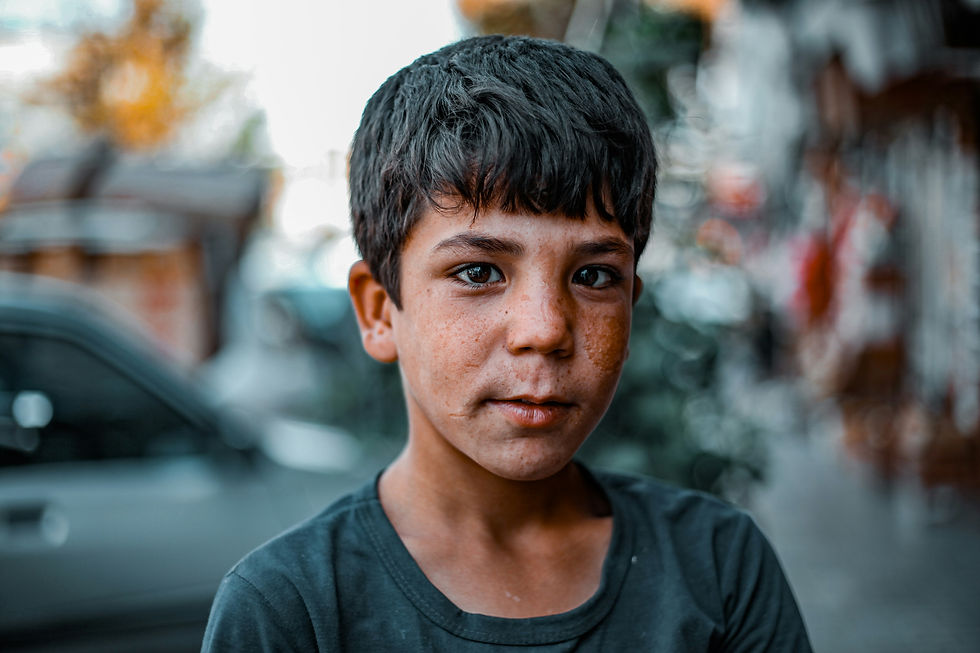Failure to Thrive: The Long-term Impacts of Food Insecurity
- Backpack Brigade
- Oct 16, 2024
- 3 min read

Tomorrow is the International Day for the Eradication of Poverty, and unfortunately, we need to acknowledge it. It’s stunning that in the 21st-century United States of America, we are still talking about poverty and food insecurity. Yet even now, in this era of abundance, 14 million children – 42,000 of them in King County alone – struggle to get enough to eat. No aspect of poverty hurts children more than food insecurity. Studies show that even a single period of food insecurity can have significant impacts on a child’s long-term health: physical, mental, and behavioral.

For instance, malnutrition in early childhood results in slower or inadequate development of motor, cognitive, and behavioral skills, putting kids experiencing food insecurity significantly behind their better-fed peers in terms of overall growth and development. Vitamin and iron deficiencies in childhood can lead to underperforming immune systems, asthma, and anemia, conditions that can last well into adulthood and result in more frequent and severe illnesses. Paradoxically, kids might receive enough food in terms of calories, but the quality of food kids receive can lead to obesity and all its related health conditions, including heart disease, type-II diabetes, and increased risk of stroke. As a direct result of food insecurity in childhood, many of these kids will grow into adults who suffer from chronic diseases that lead to earlier and higher death rates.

As if that weren’t bad enough, childhood food insecurity also leads to long-term mental health problems. The stress of food insecurity – frequently combined with other aspects of poverty such as insecure housing – can cause severe anxiety and depression in kids. Without consistent access to food or parental regulation of food intake, kids can develop long-term eating disorders and unhealthy relationships to food. And the perceived shame of poverty can result in feelings of inferior self-worth, a condition that can impact all their future adult relationships and life circumstances.

Worst of all, childhood poverty is so difficult to overcome that most kids living in households below the poverty level now will continue to live in poverty throughout their lives. Delayed development, cognitive and behavioral challenges, and inability to concentrate in school result in poor academic performance, lower rates of college attendance, diminished ability to compete in the job market, and lower lifetime earning potential.

It’s a cycle that can only be broken if we begin to treat the issue of childhood hunger as the crisis it is. For over 10 years, Backpack Brigade has been working tirelessly to bridge the weekend hunger gap for kids who rely on school meal programs as their primary source of food. Unfortunately, with the prices of food rising, demand for our services is rising to record highs. Ironically, it’s hard for us to meet this demand with the prices of food so high. We want all kids to thrive, but with our current funding, all we’re able to guarantee is that they’ll survive. We need more support, and we need it urgently.
If you care about the kids in your communities and want to make sure they’re getting the nutrition they need to grow up healthy, happy, and successful, you can help.
Here’s how:
Support local charities, like Backpack Brigade, that are doing the hard work of getting food directly into the hands of kids that need it the most.

Make your voice heard at the policy level. Call your local and state lawmakers to ask what their plans are to fund school meal programs, summer and weekend meal programs, and SNAP benefits for all qualifying families.
Write to your Senator and ask why House Resolution 7024, the Tax Relief for American Families and Workers Act of 2024 failed and how they intend to replace the protections it offered for hungry children. The number of kids suffering from food insecurity dropped to historic lows while the tax credit remained in place. Since its expiration, this number has soared to the highest levels since the Great Recession of 2008.
Sources
Rabbitt, M. P., Reed-Jones, M., Hales, L. J., & Burke, M. P. (2024). Household food security in the United States in 2023 (Report No. ERR-337). U.S. Department of Agriculture, Economic Research Service.
U.S. Department of Health and Human Services, Office of Disease Prevention and Health Promotion, Healthy People 2023 Food Insecurity Literature Summary
Ke J., Ford-Jones EL. Food insecurity and hunger: A review of the effects on children's health and behaviour. Paediatr Child Health. 2015 Mar;20(2):89-91. doi: 10.1093/pch/20.2.89. PMID: 25838782; PMCID: PMC4373582.

Comments